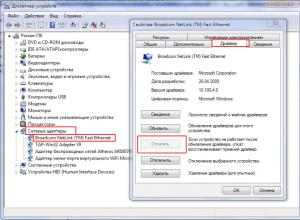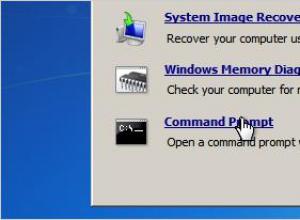Is it possible to use a mobile phone? Are phones and planes compatible: when are you allowed to use a mobile phone during a flight?
In the modern rhythm of life, smartphones have become indispensable assistants and information centers.
Technologies are developing very quickly - every year some innovations and technologies appear that simplify the user's life. For example, let’s remember a fingerprint or iris scanner, a facial recognition system and actively developing artificial intelligence technologies. Despite this, in terms of autonomy and batteries, there has been no significant progress - even the latest expensive flagships are not able to provide two days of active use of the device. Today we’ll try to figure out whether it’s possible to use phones while charging, and what potential dangers this can bring.
Battery heating
The first and most important probable problem of the situation described above is. When using a smartphone and charging it at the same time, a high load is placed on the battery. On the one hand, it gives off energy, on the other, it receives, so strong heating is possible.
The pattern is simple - the higher the load on the battery, the stronger the heating. The gadget will be especially hot in heavy games and multitasking mode, when the 4G mobile Internet is activated and the display brightness is set to high. It is important to note that the highest heating is usually seen at the outlet, as this is where the current is highest. When charging from a power bank or car, the temperature of the device rises so much.
The conclusion is simple - it is undesirable to use the phone while charging due to its possible heating. If this does happen, protect the batteries from overheating.

Charging speed
It is logical that using a smartphone while charging requires energy - it is both wasted and replenished. Thus, the devices will grow significantly. This must be taken into account if you need to quickly replenish the device's battery.
Other hazards
It should be noted that there are very rare, but truly dangerous situations. Unfortunately, news periodically appears in the media about the deaths of smartphone owners when they use them in the bathroom. Falling a plugged-in electrical device (not just a telephone) into water often has fatal consequences.
Results
It is not advisable to use a smartphone while charging - the phone often heats up and the charging speed decreases. In most cases, nothing bad will happen, but it is very important to take precautions and be alert.
In modern realities, every person has a mobile phone at their disposal, and it is difficult to imagine any of us without a gadget today. What about the issue of cell phones in the army? After all, a soldier is also a person. Today we will try to understand this current topic and find out whether it is possible to use a telephone in the army, what is the procedure for issuing them, and how you can hide your cell phone if you really don’t want to part with it.
Is it allowed to use
Let's start with the official part. Mobile phones in the army are allowed for conscript soldiers, this fact is reflected in the current legislation (instructions of the Minister of Defense number 2; 205; 862 of December 20, 2009). These documents say that the use of cellular devices by military personnel is possible, but with restrictions - phones are issued on certain days and hours, while most of the time the gadgets must be stored indoors.
At the same time, the law does not specify the period during which a soldier can communicate with family and friends via a mobile phone - the hours are set by the commander of a particular unit. As a rule, the days for using cell phones are Saturday (after the end of the PCD), Sunday (after sports events) and holidays. In general, the army provides a unique opportunity to be at least for some time without a gadget in your hand and your gaze fixed on it (the second such place is prison, so you need to take advantage of the moment).

However, in practice, everything happens so differently that the most contradictory testimony regarding telephones in the army can be heard. In some military units, a mobile phone is generally issued only for 2 hours on Sunday evening, somewhere this happens every day in personal time before lights out, and there are also units where soldiers do not part with gadgets around the clock, and then they are surprised to learn from friends that in fact, my favorite accessories needed to be handed over somewhere, and on completely legal grounds.
Caches and the Soldier's Imagination
In general, the army is an amazing place where human ingenuity is realized 100 percent (fortunately, there are plenty of reasons for reflection due to the fact that there are a great many restrictions). Of course, the situation with mobile phones is no exception. Every serviceman involuntarily thinks about how to hide a phone in the army.
As a rule, a check to see if a soldier has a prohibited accessory occurs during the morning inspection, and this is where the fun begins - the first to be caught are inexperienced soldiers who hide the phone in their boots and headgear, and those who have forgotten about basic safety measures (turn off the sound and vibration ). More sophisticated secret places are also revealed: an additional pocket on the jacket and pants, disguises using a belt and other products of soldier ingenuity.
- first of all, you can put the device in neatly and tightly wrapped warm clothes;
- another way is that you can hide your mobile phone in a book (the classic version is to cut out the middle part of several pages);
- You can try to put the communication device in one of the cigarette packs of the block (you will need to very carefully print out the cellophane wrapper of the block and no less carefully seal it back).
Sometimes during the day we spend more time on our phones than communicating with loved ones or, for example, watching TV. Is it possible to use your phone, tablet or other gadget less?
Where did this addiction come from to not part with your phone and be online all the time?
5.
6.
7.
Phone addiction problem
Research shows that the more time a person spends on their smartphone, the higher the risk of becoming addicted to virtual reality. It is virtual, I would like to emphasize this. Real reality is usually very different from virtual reality, not at all.
Today, on average, people spend 3-3.5 hours a day playing games, viewing entertainment resources, etc. Moreover, about 20 percent openly admit that they are, to one degree or another, dependent on their gadgets.
If you recognize yourself, it’s worth thinking about whether it’s time to do something about it. Is there life only in the phone, gadget and social networks? Real life somehow used to get along quite well without these objects and phenomena.
The consequences of addiction can include not only the bitter realization of wasted time, but also a growing feeling of loneliness, envy, loss of interest in hobbies and deterioration of relationships with loved ones, up to complete loss of contact. In some cases, qualified medical assistance may already be required if the addiction becomes dangerous.
There is a myth that you need to turn off your mobile phone in the cabin, otherwise the “winged bird” will definitely fall during the flight. True, people who have already been on board (or fly frequently) may notice that sometimes passengers use their phones - and neither the plane crashed nor the flight attendants raised a scandal. So can I turn it on or not?
Ten (or so) years ago, every flight attendant asked passengers to turn off their cell phones without fail, since their work could result in interference in the equipment of the plane itself, that is, provoke their incorrect operation, which, at best, could result in a heading error, and in the worst - a crash during landing.
However, later the developers of smart flight equipment reassured us: there is nothing to be afraid of phones, and even if your child forgets to turn off his “pipe”, nothing will threaten the safety of passengers. However, many companies, in the old fashioned way, continue to intimidate with “interference,” calling for them to “silence” all their equipment. Why are they doing that?
- This is regular insurance. It is difficult to keep track of all the developments in the world. Who knows, maybe in a month or two someone will bring that same dangerous, especially “sophisticated” phone from China?
- Passenger safety. Firstly, suddenly the interior shakes during turbulence, the glass “brick” may fly out of your hands and break (or give someone a bump). Secondly, if an emergency situation suddenly occurs, the passenger who is staring at the gadget will not be able to quickly respond to the flight attendant’s commands. Or here’s another example: the plane shook, the passenger screamed in fear and accidentally pressed the end call button, and her telephone opponent on the ground had a heart attack: “That’s it, the plane is falling!”
- This is not profitable for airlines in terms of money.. It’s easier for them to turn off all private phones and offer everyone their own paid communication points.
- Convenience of other passengers. Even in some minibuses they ask you not to talk on the phone, as it distracts other people. But it's a half-hour drive there. Imagine what it’s like to listen to someone’s obscene jokes, love stories or complaints about an unfair life for three hours in a row?
So is it allowed or not?

Officially, you can do as much as you want. This has even been confirmed at the “legislative level”. In 2014, both American and European flight safety agencies allowed phones to remain on in the cabin...
But! The airlines still have the final say. And they use this right to the fullest. Let's say:
- on some planes there are no restrictions at all (European air carriers are often such democrats);
- in others they ask to be sure to switch the device to “flight mode”;
- still others insist that the “tubes” be turned off during takeoff and landing, and during the flight they can be used without restrictions (most often such rules apply on board American companies);
- fourthly, it is not allowed to chat, only write SMS or sit on social networks;
- and fifthly, they may be asked to turn off the “pipe” for the entire duration of the flight (such draconian rules are more often complained about by travelers who board a Russian carrier)…
How to find out the rules by which each specific company “lives”? They are posted on company websites, and of course, they are voiced by flight attendants before the start.
Is it worth arguing with a flight attendant, waving a printed set of rules in front of her nose? As the experience of overly civically active travelers has proven, no. There is information on the Internet that on some particularly strict flights, passengers were removed from the plane for refusing to turn off not only their mobile phone, but even their digital camera.
And don’t rush to get angry with the flight attendant - she understands perfectly well that a cell phone does not pose a danger, but she is dominated by the company’s rules, which she must comply with. And if she is told to force everyone to “turn off their engines,” she will do it, sometimes under the threat of losing her place.
Is it possible to call home from a bird's eye view?
Some companies draw up an agreement with cellular operators, so they even offer people to connect to the plane's line. However, this will be a roaming service, and you can use it only in two cases - you really have something important, or you just don’t have money. It is very expensive, so most passengers prefer to wait until boarding.
However, there are carriers that offer Wi-Fi to passengers. In such cruise ships everything is much simpler - launch Skype and communicate with whoever you want!
Can I charge my phone or laptop on board?

Sometimes the flight takes about 10 hours, and if some passengers are simply bored, dozing or leafing through books all this time, then for others the issue of a “long-playing” phone with cartoons or toys is extremely important (especially if small children are flying with them - take away their mobile phone or a tablet, and they will plague the entire plane with their antics or hysterics).
The good news is that there are power outlets in business class. And even more than that - each chair is equipped with a USB connector.
However, sometimes you can find an outlet in economy. Of course, if you board an old plane, your chances are slim. If it is new, you can look under the seat or ask the flight attendant - perhaps you will be able to recharge.
And of course, no one has canceled Powerbank yet!
But a phone is a phone, are there things that you can’t do on board under any circumstances? Certainly! A site specializing in shameful incidents that happened to airline passengers (yes, there is such a thing) has compiled the top 10 most unpleasant situations that people all over the world have found themselves in due to their awkwardness, inexperience, and even rudeness. More details in this video:
What to do with your phone on an airplane? What happens if you leave it on despite the ban? Is there communication at high altitude? Today we will try to find the answer to these questions...
Should I take my phone on board an airplane and why might there be difficulties with it?
You can take your phone with you on board the plane, but whether you will be allowed to use it depends on the orders of the airline management.
The design of the aircraft is particularly complex, and its aeronautical equipment, autopilot, control display, and communications structure can sensitively respond to interference coming from the use of mobile phones, tablets and other digital devices.
However, this version has roots ten years ago. Aircraft manufacturers have studied the impact of mobile devices on the operation of aircraft and have concluded that there is no direct impact, and talking on the phone during a flight will not cause interference or otherwise pose a threat to the movement of the aircraft.
For this reason, American and European airlines lifted the ban that prevented the use of phones on board, although this happened not so long ago - in 2013.
Situation with phones on board – USA, Europe, Russia
- An airline from the United States will allow you to use a digital device in offline mode during takeoff and descent, but the entrance to the Internet will open only at an altitude of three thousand meters above ground level.
- Since 2014, the European Agency responsible for aviation safety has allowed the use of laptops, mobile phones and other digital devices on board in any mode, regardless of the stage of the flight.
- Russian airlines have taken categorical measures and will not allow the use of electronic equipment on board their aircraft during takeoff. This measure is not legally justified (the current rules on aviation security only regulate the transportation of electronic devices, equipment and equipment), the reluctance to turn off digital equipment in the aircraft cabin can provoke a serious conflict that will end in the removal of the passenger from the flight, cancellation of the boarding pass and compensation for losses caused by the delay flight. And the reason for all this will be a violation of safety rules during the flight.
“I’m calling you from a height of ten thousand meters...” – is this possible?
The ability to call loved ones or friends during the flight again depends on the airline and its agreement with roaming operators. Some manage to provide their passengers with both Wi-Fi and high-quality mobile communications, for example AeroMobile from Emirates airline.
But such services are not always in high demand, so not all airlines are in a hurry to introduce them, and some even refuse them altogether.
Pilots and flight attendants strictly adhere to the rules and regulations of the airlines for which they work, but today everyone, both crew and passengers, understands that mobile devices do not affect the quality of the aircraft. But in order for the flight to be successful and without conflict, we advise you to carefully listen to the instructions of the flight attendants and follow them unquestioningly.
Latest site materials
Video

International postal tracking
To track your parcel you need to take a few simple steps. 1. Go to the main page 2. Enter the track code in the field with the heading "Track postal item" 3. Click on the "Track parcel" button located to the right of the field. 4
Windows 8

How to delete a page on VK?
Every person registered on a social network may want to delete their page completely, or for some period of time. The time given by developers for reflection varies from one month to six months. This is due
Browsers

Finding duplicate files using CCleaner How to find identical files on your computer
Good day. Statistics are an inexorable thing - many users sometimes have dozens of copies of the same file (for example, a picture or a music track) on their hard drives. Each of these copies, of course, takes up space on the hard drive. A
Browsers

A quick way to install Windows without a disk or flash drive
I first encountered the question of how to install Windows on a computer at checkout 4. There was no Internet where I lived, so this question was especially difficult for me. At the end of the 4th grade, my father bought me a book, I don’t remember exactly what it was called, approximately “Os
Programs

If the Internet does not work after reinstalling Windows... A few tips
Drivers for the network adapter are needed on any Windows device where you plan to access the Internet. This cannot be done without them. After installing Windows, you need to install all the necessary drivers. You also need to download it for the network adapter
Video

Windows 7 asks for password when logging in
All passwords, especially complex ones, are often forgotten by us. Sometimes it happens that we write down their meaning only on a piece of paper, which is soon simply lost. In general, the situation is typical. Beginners are sometimes frightened by the fact that if they have forgotten their password, they cannot log into the system.